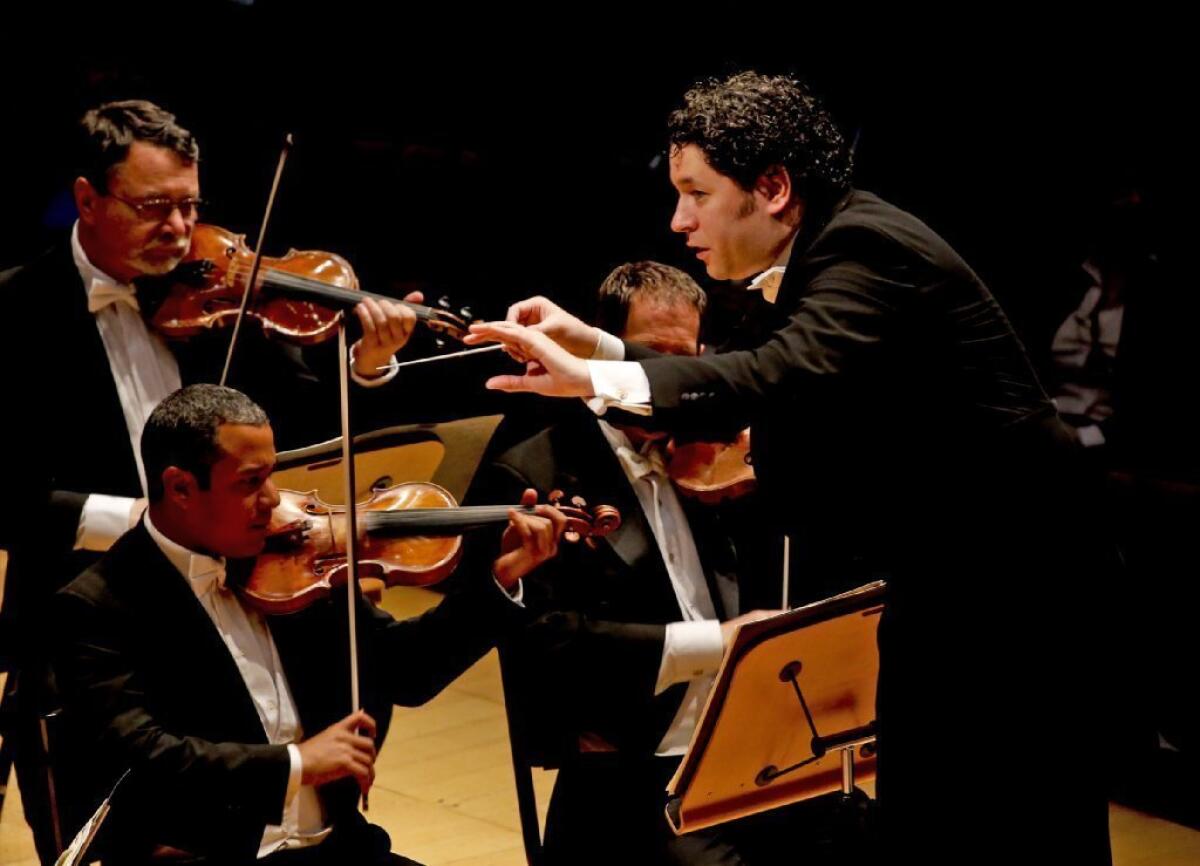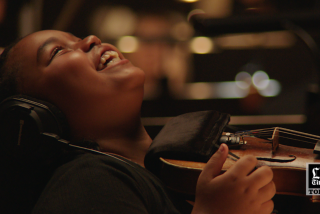Apathetic ears mute the body’s music reward response

Everyone dislikes some kind of music, but are there people out there who don’t respond to musical pathos?
Apparently, yes, and they weren’t lying when they said so, according to a study published online Thursday in Current Biology.
A team of researchers from Spain and Canada was trying to develop an accurate questionnaire to gauge people’s sense of reward from music when they found that roughly 5% of their study subjects reported getting no pleasure at all from music.
So they followed up by testing 30 subjects, grouped by their relative affinity for music. The bottom group, which expressed the least pleasure in music, also exhibited the least change in heart rate or skin conductivity (proxy measures of emotional response), when listening even to pieces they chose.
“They were not just saying so, but the physiological responses were in accord with what they were saying,” said the study’s lead author, cognitive psychologist Josep Marco Pallares of the Bellvitge Biomedical Research Institute in Barcelona.
What’s your music appreciation score?
Now, there certainly are people who can’t process music well -- about 4% of the population suffers from amusia. Others, particularly those with depressive disorders and neurodegenerative diseases, suffer from general anhedonia -- a pronounced deficit in experiencing pleasure from widely different stimuli.
But is there a separate musical anhedonia? The study suggests so.
None of the participants showed signs of general anhedonia, nor did they exhibit significant differences in their sensitivity to rewards, according to the study. All did well at categorizing musical passages as happy, sad, scary or peaceful, according to the study. And they reported no differences in their levels of pleasure with other stimuli -- except music.
Reaction times and accuracy in a test of monetary rewards also showed no differences among the groups.
The only thing that correlated well with the heart rate and skin conductivity test was the subjects’ score on the Barcelona Music Reward Questionnaire, which rates such things as music seeking behavior, use of music to regulate mood, whether music was a shared social experience, and other factors.
The study suggests not only that musical enjoyment is not as universal as commonly assumed, but that the brain’s pleasure response may be somewhat fragmented.
“In general, it’s thought that there is a continuum in the degree of pleasure you get from rewards,” Marco said. “This is not completely true. There are differences, but this kind of activity depends on the type of stimuli. There are different kinds of stimuli which may be more effective in activating the reward system, and some that might not be effective at all.”
Marco said the results could help the team refine musical therapies for stroke victims, which sparked their interest in the brain’s reward response to tunes. But it could be applied to other therapies, he added. Anhedonia is a key component of major depressive disorders, and is common among those with Parkinson’s disease.
You probably want to know what kind of music the subjects listened to.
Thirteen pieces were culled from responses to a poll of 200 people with similar demographics to those in the study. The set list skewed toward well-known classical pieces such as “Spring,” from Vivaldi’s “Four Seasons,” and the Puccini aria “Nessun Dorma.”
“Most of them are very well known classical pieces,” Marco said. “The list was not as original as we expected. We expected more pop music.”
Also making the list was the musical theme to the 1992 Summer Olympic Games, “Barcelona,” composed five years earlier by Freddie Mercury, who recorded a duet version with Montserrat Caballe.
Subjects were asked to bring several chosen pieces, Marco said. The so-called hyper-hedonic, characterized by high music appreciation, brought in what could only be described as an eclectic mix (artists with multiple cuts included Carlos Santana, Paco de Lucia and Beethoven; Pink Floyd, Deep Purple and Genesis were wedged in among Beirut, Rihanna and movie score composer Clint Mansell, the former front man for Pop Will Eat Itself).
“I would say it was less typical,” Marco said.
The task of selecting a handful of songs proved daunting for the musically apathetic. “They were really having trouble bringing music in, and some of them asked family and friends to give them music,” Marco said.
Besides some Beethoven and the themes to “Pirates of the Caribbean” and “Superman,” the musically indifferent chose The Verve, Franz Ferdinand and Moby.







